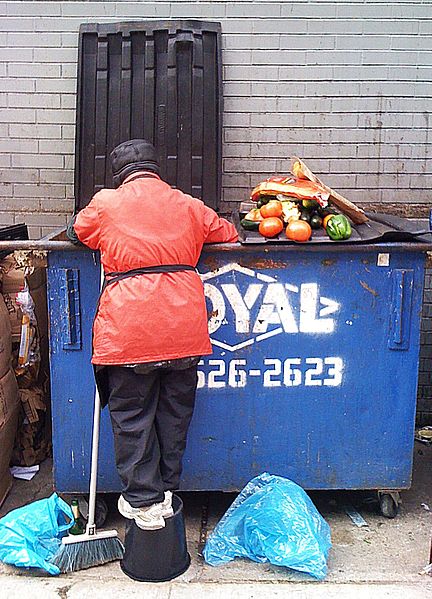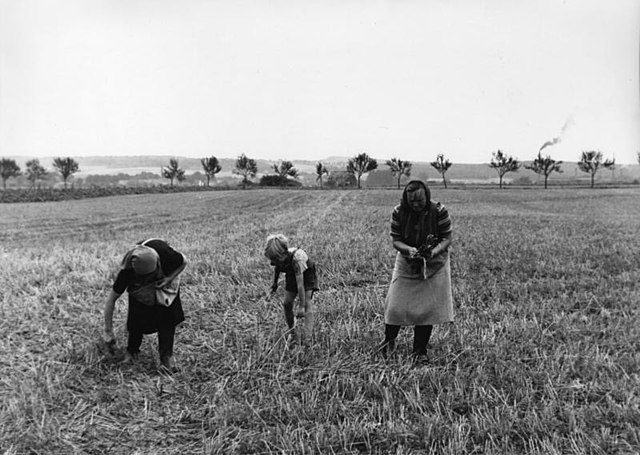Dumpster diving is salvaging from large commercial, residential, industrial and construction containers for unused items discarded by their owners but deemed useful to the picker. It is not confined to dumpsters and skips specifically and may cover standard household waste containers, curb sides, landfills or small dumps.
A person dumpster diving
A man rummaging through a skip at the back of an office building in Central London
Food obtained by dumpster diving in Linköping, Sweden
Unsold books from a bookstore near the University of Washington are piled into a dumpster.
Gleaning is the act of collecting leftover crops from farmers' fields after they have been commercially harvested or on fields where it is not economically profitable to harvest. It is a practice described in the Hebrew Bible that became a legally enforced entitlement of the poor in a number of Christian kingdoms. Modern day "dumpster diving", when done for food or culinary ingredients, is seen as a similar form of food recovery. Gleaning is also still used to provide nutritious harvested foods for those in need. In the United States, it is used due to the need for a national network to aid food recovery organizations. This is called the National Gleaning Project, which was started by the Center for Agriculture and Food Systems at Vermont Law and Graduate School to aid those less fortunate much like the old Christian Kingdoms.
The Gleaners by Jean-François Millet, 1857
Gleaning by Arthur Hughes
Impoverished Germans gleaning in 1956
Jules Breton, The Gleaner, 1875, Aberdeen Art Gallery








